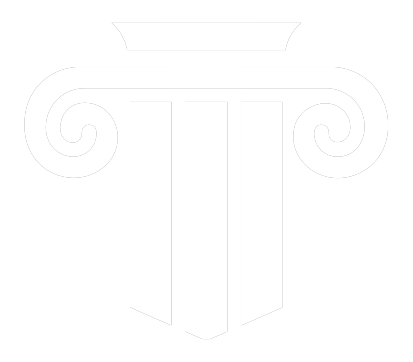About us
When you walk into one of the Ethos Logos supported Classical schools, you will notice something different. From a happy staff member greeting you at the front desk to busy scholars in the hallway holding open the door for adults. Ask a scholar what makes us different and you'll hear a heartfelt story about a teacher that made a connection, or a project in art, or about friends on the playground. Stop a parent and you'll hear a story about how their child likes school again or the lively dinner table conversations about a time in history that made an impact.
The trademark of all our supported schools is a TEACHER that loves and is passionate about kids, SCHOLARS that work hard while having fun and PARENTS that are partners on our scholars academic journey.
At every level of our organization we model service above self as defined by Robert Greenleaf’s work from 1977, Servant Leadership. In practice, this means that from the CEO to our custodians and from our Teachers to Principals, we strive for a culture that focuses on how we can help others. Each team member wakes up with the singular goal of preparing our scholars for what lies ahead. Can you think of any bigger job?
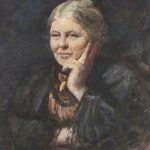 Our schools are a blend of rigorous Classical Education found in many private schools and the Charlotte Mason influences adopted by Home School families around the US. It's nuanced but important, the Charlotte Mason influence adds living books, nature study and a belief that scholars are adults becoming. The blend is a concentration on academic rigor and character development all the while keeping the learning environment focused on the students and FUN.
Our schools are a blend of rigorous Classical Education found in many private schools and the Charlotte Mason influences adopted by Home School families around the US. It's nuanced but important, the Charlotte Mason influence adds living books, nature study and a belief that scholars are adults becoming. The blend is a concentration on academic rigor and character development all the while keeping the learning environment focused on the students and FUN.
We are schools built on RELATIONSHIPS. The reason we believe that we have been so successful is that we are rooted in the works of Dr. Rudolf Druikers 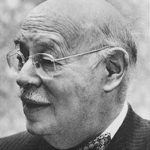 and Dr. William Glasser whose research demonstrated that issues and conflicts in a school or a family come down to a breakdown in relationships.
and Dr. William Glasser whose research demonstrated that issues and conflicts in a school or a family come down to a breakdown in relationships.
We understand that the most impactful part of our school is the TEACHER in the classroom and we invest heavily in their professional growth. Our mission is to PARTNER with our PARENTS because we understand that you are the primary educator in your child’s life. As a school of choice, we know who we are and what we stand for.
Here are some of the sights, sounds, and beliefs that I want you to look for as you tour any of our campuses:
Teachers and staff see themselves not just as educators, but as students too. Like all good schools, we focus on the technical aspects of education from lesson planning, student engagement and the latest in brain research. But what is different in our Classical schools is that teachers put an intentional effort into going beyond standards and tests, to focus on the whole child learning experience. Our teachers work toward exposing our scholars to the values and virtues that accompany ideas and concepts. When teachers join us, we have to almost "unlearn them" from the conditioning of their past. 80% of teachers choose their profession to make a difference in the lives of children, yet most have been so focused on high stakes testing that the big discussions that help develop character take a back seat. In our schools, we help our instructional staff slow down, go deep and have those impactful moments that connect emotionally.
We look for and encourage our teaching staff to be LIFE LONG LEARNERS. Like Doctors or Lawyers, Teachers are professionals that are forever perfecting their craft. A lifelong pursuit of learning and improving our professional skills are a prerequisite to teaching in one of our schools.
We invest heavily in PROFESSIONAL DEVELOPMENT (PD). Our PD Director oversees the professional growth of all of our teachers -- from on-site PD Coaches to Principals that were sought out for their academic leadership and on down to intentional mentor groups and small teams that support each other. We have created virtual platforms to share lessons and best practices across campuses with other grade level instructors. Think of it as a Facebook group for 200+ 4th-grade teachers from around the US, all on the same team. No longer are teachers alone and siloed off in their classrooms.
Our PD Department has created monitoring tools that give us feedback on how the teachers are advancing in their profession. All our leaders are calibrated to understand what is expected and what good Classical teaching looks like. We provide our professional teachers with virtual training where they can watch our top instructors demonstrating a particular technique in a live classroom. Our training also involves job-embedded training, one on one coaching, and a mentorship program that allows seasoned teachers to help newer colleagues. We exercise GRACE but have clear BOUNDARIES for all our staff, just like we expect them to model these traits in the classroom. The practice of teaching, like the practice of other professions, is a life long endeavor and we help teachers get a little better every day.
Our teachers work hard, plan hard, have fun and share with each other their best practices. Behind the scenes we have built out a cloud-based curriculum resource which put Classical and Standards-aligned curriculum lesson plans and resources together that can be customized to match the teacher and their particular style. I like to equate the curriculum offerings to a MENU and a BUFFET. The menu is at the teacher's disposal, to cover a particular day/week or month-long unit, or they can visit the buffet and choose from thousands of resources to make their instruction impactful. We have built out EXIT TICKETS which give a teacher (and parent) the big ending targets for History, Art, Music, English, and Science. How each teacher gets there is up to their professional judgment.
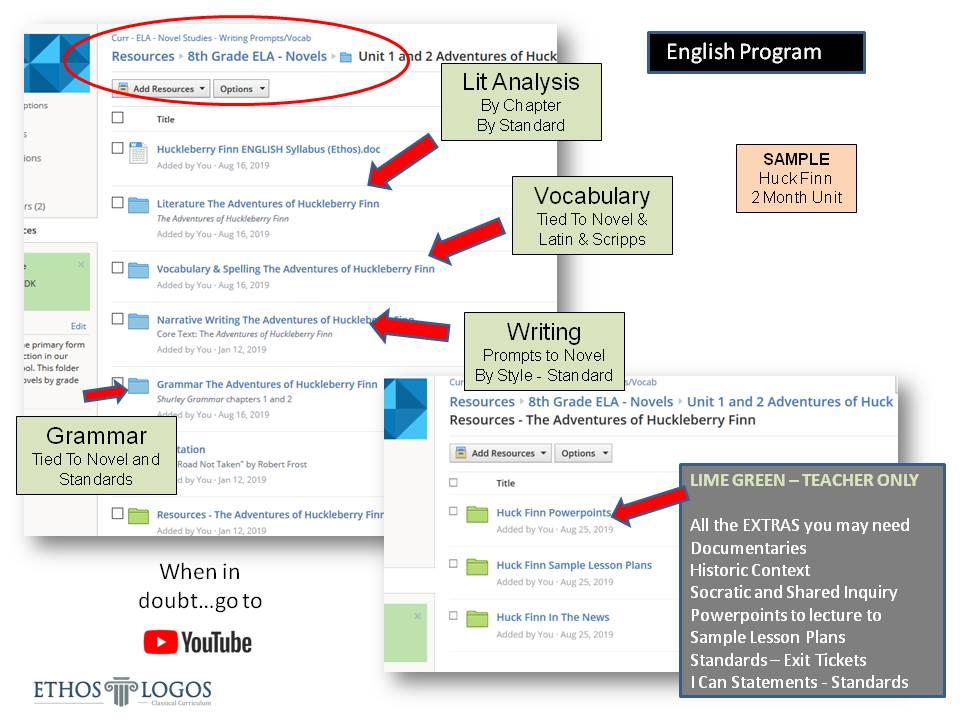
We work to encourage our teachers to move away from the "Sage on the Stage" to a model where they are the "Guide on the Side." There are a time and place for direct instruction (primarily in the Grammar or lower grades), but we are training our teachers to be masters at the art of Socratic or student lead discussions.
We work with the 70 years old non-profit THE GREAT BOOKS FOUNDATION and implement their content into history and literature as a supplement to our classic novels. The Great Book Foundation helps our teachers with a version of Socratic instruction they have developed called SHARED INQUIRY. Under Shared Inquiry the students engage in the discussion but the teacher has a clear path of where the class will end up. The art of teaching is in the power of a great question. I think you will see we take this idea seriously. By middle school and high school, the students should have the foundations to dissect the complex text and formulate their opinions and be able to hold a discussion at a high level.

Visit classrooms and you will find teachers incorporating practices based on the latest brain research, under the model of the centuries old Trivium stages of learning used in top Classical schools.
Many classrooms will be playing the composer of the month's classical music to set the stage for learning. The floors are clean and polished and attention to the details set the tone that we respect our campus and expect great things for the day.
Talk to students and you will hear about a love of learning. We have seen that by 4th or 5th grade, many scholars lose the joy of learning and school becomes a "have to do" instead of an "I can’t wait to go." We meet our scholars where they are and have programs to accommodate for special education students, scholars that are below grade level and those that are advanced.
Our schools utilize technology carefully. We provide Google Chromebooks to access our digital tools and some campuses have elected to move to a BYOD (Bring Your Own Device) model to connect school learning with home access. Classical Education still values the power of the good old fashion book. Don't worry, the classic works of C.S. Lewis, Shakespeare, Homer, Mary Pope Osborne, Mark Twain and Jack London are still found in backpacks and on nightstands of all our students. In this day and age of technology and short attention spans, learning to dive into the deep rich stories that have withstood the test of time is what we do.
Classrooms are organized. Classical elements like timelines from history adorn the walls to give scholars a visual sense of the time period of history they are emerged in. In each classroom, you will see featured artists and composers of the month and values and virtues that the entire school is focusing on in their classrooms and throughout the campus.
Our Classical schools have a heavy concentration on Language Arts. From the reading and interpretation of great literature to poetry recitations we teach a fundamental focus on grammar and vocabulary and you will find that we have a heavy speaking and writing emphasis. Our scholars leave our schools ready for higher education and beyond.
Classical Education works and is backed by research. From yearlong themes where the scholars are immersed in the time period of study, to the benefits of Latin instruction in SAT score increases, everything we do is with intention and perfected over 1,000 years of practical application.
If you step into a 6th-grade class, you will see students reading the great works of literature from the Renaissance period, including King Arthur and His Knights of the Round Table, or Samurai’s Tale, or The Hobbit, or Treasure Island. Seamlessly, their history instruction will tie into their literature. The great advancements in art/music will be explored in their dedicated art classes. Science will cover the up-to-date Next Generation Science Standards which focus on the great scientists and advancements of their historic time period.
Creativity and Immersion Into History
The interconnection of subjects helps scholars connect all the dots and understand how the past relates to today.
Our history offerings found in our curriculum mapping are built-out using National Social Studies Standards plus the S.P.R.I.T.E. Model. Under this buffet of curriculum resources, the teacher can choose one or more aspects of a particular month-long unit. The flexibility for the teacher to focus on the SOCIETY (what it was like for children, nobility or others in a time period), POLITICS (how the civilization was governed and ruled), RELIGION (what doctrine a community followed, when the great religions started and how they impacted society), INTELLECTUAL (what were the great ideas, the impacts of art, architecture and music), TECHNOLOGY (what advancements came into existence and how these changes impacted history), ECONOMY (how did the society trade, build, grow or make the goods and services they needed). The S.P.R.I.T.E. Model of history lesson planning allows the teacher to match their interest with their students curiosity to deliver impactful lessons.
I have seen some of our 6th grade teachers dress in Knights and Queens costumes to welcome the students in for a week of Medieval Games. With our Charlotte Mason influences, we encourage creativity because long after a scholar leaves the 6th grade, they may forget the Pythagorean Theorem but they will remember their teacher hosting the feast of the round table.
Charlotte Mason Philosophy
The Charlotte Mason influence focuses on the students as adults becoming and two key ideas that our schools embed into the Classical model are "Education is an atmosphere, a discipline, a life" and "Education is the science of relations." Her motto for students was "I am, I can, I ought, I will.”
Mason coined the phrase "living books that spark the imagination of the child through the subject matter.” I know that this concept can be nuanced to you as a parent but the best way I can surmise the blend of our model between Classical and Charlotte Mason is that the Classical element is the black and white photo of an Ansel Adams and the Charlotte Mason is the vibrant pallet of a Monet. Both are masterpieces. The combination of the two complement each with the other and has overlapping mastery, but very different styles.
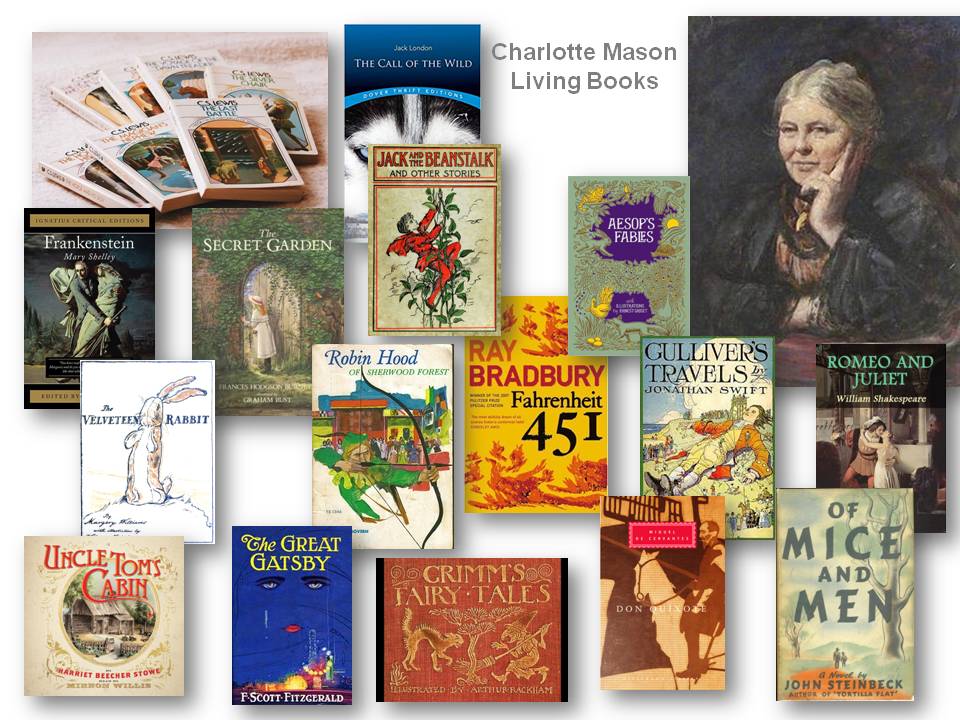
Great Books Foundation - Poetry - Plays - Original Documents
Join the class at the right time and you will hear a student reciting the poem Success by Longfellow or Sonnet 18 from Shakespeare in front of their class. Grading measures the audience respect as well as the presenter's
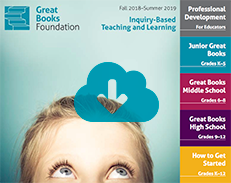 projection and eye contact. Travel to art and you will see projects that teach theory and hands-on application of the great works of the Renaissance. In music, students will be preparing for a choir presentation while studying the great composers of the late high Renaissance. And yes parents, we introduce the subject of Logic beginning in the 6th grade and look forward to dinner time debates that sharpen your student's argument skills. Every lesson, every connection is done with intention.
projection and eye contact. Travel to art and you will see projects that teach theory and hands-on application of the great works of the Renaissance. In music, students will be preparing for a choir presentation while studying the great composers of the late high Renaissance. And yes parents, we introduce the subject of Logic beginning in the 6th grade and look forward to dinner time debates that sharpen your student's argument skills. Every lesson, every connection is done with intention.
Learning happens in the classroom but also in the lunchroom, playgrounds, and gym. Recess is an important part of our students' day. Our schools offer intramural athletics and weekly physical education classes.
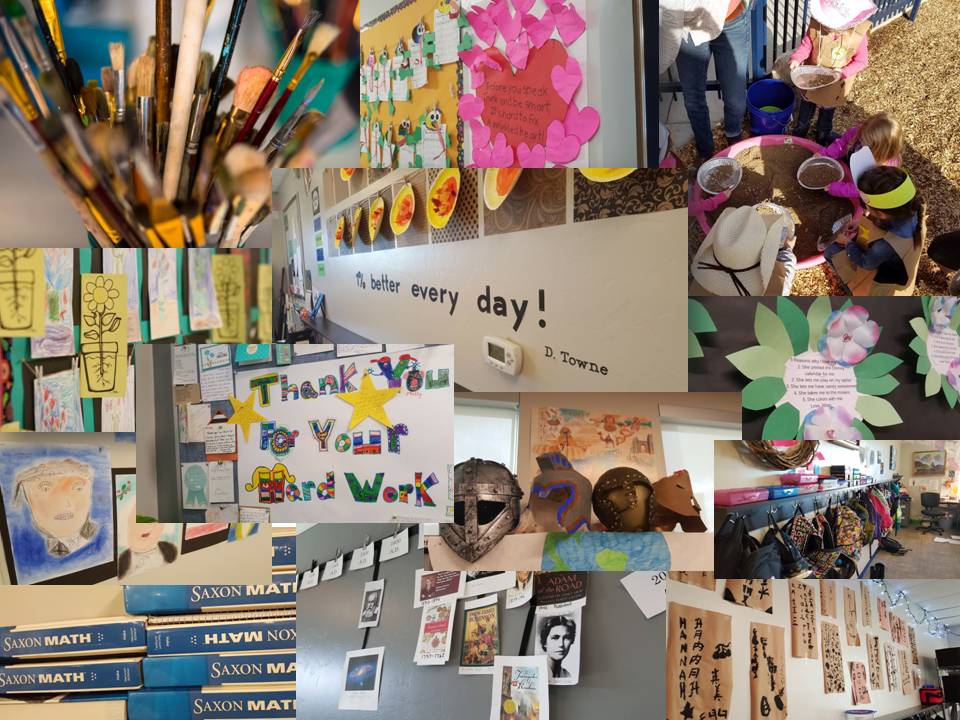
Focus on Values and Virtues
Hallways are orderly and quiet because other classes are in session. When I walk onto campus and have a door held open for me, or if I'm the one holding the door, I hear a series of "thank yous" as the scholars pass by, and then I know we are on the right track. We teach children to respect adults, respect each other and to say a simple "thank you" when appropriate.
The artwork on the hallways is a blend of the great men and women of history and student created artwork from ancient Chinese calligraphy to kindergarten interpretations of van Gogh. Research has shown that these graphic displays help reinforce the culture we are trying to build.
After School Enrichment is an important part of students learning experience. From the playing fields to the choir to clubs, each campus uniquely matches their families' request with activities.
Ethos Logos - House System
As a classical school featuring a curriculum based on the traditions of Western culture, our schools are supported in creating a House System that is inspired by the ideals of republican participation, shared leadership, and civil service.
Specifically, the House System exists for three purposes:
- To allow scholars a system in which they can belong, collaborate, and serve.
- To allow families an organizing structure to build community, celebrate learning, and give back to their local school.
- To sponsor school events and other school needs with the creativity, energy, and leadership of our family-volunteers in each grade level.
Similar to how the Classical curriculum is organized by historical time period following a 4-year cycle, scholars in each grade level will belong to a House (called by the Latin “Domus”) in partnership with the other grade level that is studying the same period in history each year.
Once Houses are formed, those scholars will remain in the same House as they progress from one grade to the other until their time at our school is completed. Older scholars will be in the position to model, encourage, and mentor younger scholars in the same House. As younger scholars progress through our program, they will become mentors.
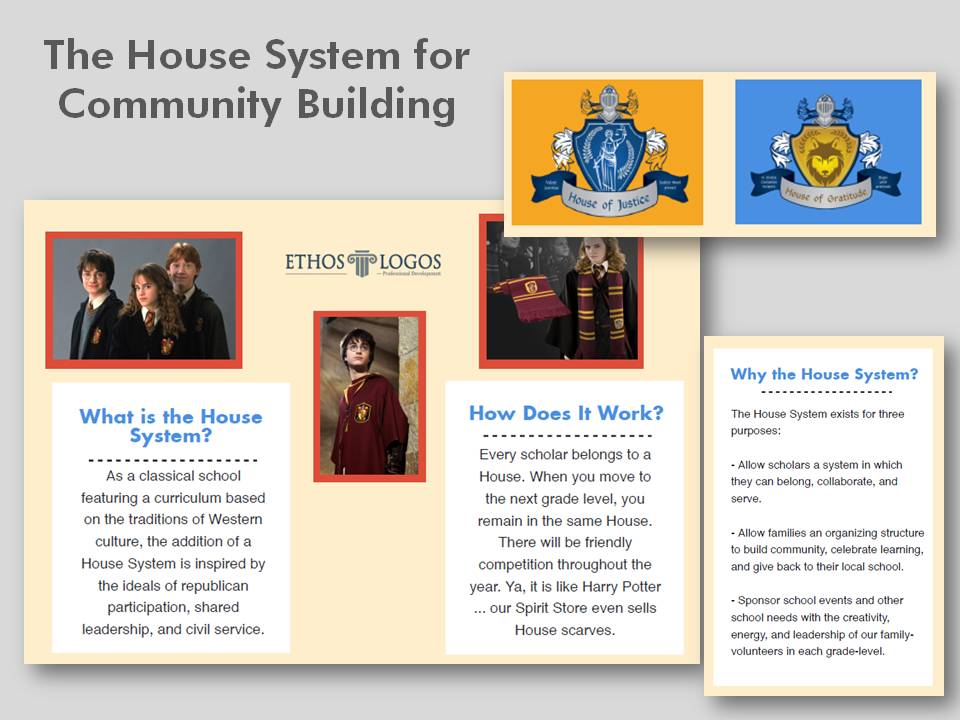
Each House elects a House Co-Captain (1 captain per grade for a total of 2 co-captains), and determine which house will adopt which quarterly campus-wide event. Typical options include:
- Fall Festival (September)
- Grandparents Day (November)
- Sweetheart Dance (February)
- Math and Science Day (April)
To help establish the school culture, parents in each house will elect leadership to help support their scholar's efforts. Over the summer, prior to opening, there are some suggested offerings for House leaders to adopt and organize for their Houses and/or the entire school community. The goal of the House is to build community across grades and to model what we expect as part of our learning community.
Athletics
Our schools will offer a full selection of after school sports. Most campuses will include a full-size gymnasium with hardwood floors. The gym-based sports of Boys and Girls Basketball and Volleyball will be launched year one. Additional sports including softball, flag football, and soccer will be launched based on the league options for competition and the interest of the students. Our schools will have a dedicated PE Teacher who will act as Athletic Director to organize the leagues and ensure high-quality sportsmanship occurs on and off the fields. For our high schools, we work to provide top-notch facilities and coaching staff that make us competitive.
Odyssey of the Mind Club
Most of our campuses have created Odyssey of the Mind teams to compete regionally and beyond. The critical thinking skills and projects that are rooted in history lend themselves perfectly to the Classical Curriculum. Odyssey of the Mind is a creative problem-solving program involving students from kindergarten through college. Team members work together at length to solve a predefined long-term problem and present their solution to the problem at a competition. They must also participate in the spontaneous portion of the competition by generating solutions to a problem they have not seen before. While the long-term problem solution often takes many months to complete and involves various elements of theatrical performance, construction, and design, the spontaneous portion occurs the day of the competition.
Orchestra – Theater
If the community decides there is demand for Orchestra or Theater, we typically help to set aside matching funds to ensure scholars can experience the joys of these art forms. Both programs lend themselves to the Classical Educational model.
Parent Pay After School Clubs
Depending on the offering from local third party vendors, each campus seeks out and contracts with elementary based after school programs. Some of the clubs we will focus on include:
Lego Club
Gymnastics Club
Dance In All Forms
Karate Club
Book Clubs
Honor – Traveling Choir
Chess Club and more
Teachers will be offered a stipend beginning in year two to lead a club of their choice.
Culture is modeled and intentionally embedded in everything we do. We have a nine point plan, backed by research, that complements and aligns with the instruction in the classroom. All our schools work hard on building their culture. Our Character focus includes a district-wide focus on two values and virtues each month. This focus includes incorporating these virtues into lessons, in the lunchrooms and practice fields. Principals and staff look for creative campus-wide events or morning announcements aimed at making the value/virtue of the month come alive.
The Power of Teachers in Character Education
Ask most teachers why they chose the profession of teaching and undoubtedly you will hear their desire to impact individual students and their communities. Study after study including a recent survey of 3,000 teachers, (Ni and Rorrer, 2018) show that results point to the three areas that rise to the top for the WHY of a teacher.
-
Desire to make a worthwhile difference in the lives of children (85%)
-
Desire to contribute to the greater societal good (70%)
-
Experience working with children/young adults (64%).
The Ethos Logos Character Program is designed to tap into the WHY a teacher chose their profession, perhaps rekindle the love of teaching in those that have been too focused on standards and testing, and tap into the power of great stories that have been the basis for passing ideas from one generation to another for a millennia. The Ethos Logos Character Program provides a buffet of tools, aligned to the classroom curriculum of instruction in core content areas that help teachers to deliver quality character education. In addition to the resources, a comprehensive training and delivery system for classroom and school-wide character development is embedded in all the Ethos Logos Character Program offerings.
Our foundations for culture and our approach to discipline are built on the works of Adlerian psychologists, Dr. Rudolf Druikers and Dr. William Glasser. Their work focused on the root causes of discipline issues, the role of choices to encourage desired outcomes and a pursuit of excellence -- but with consequences. We look at mistakes as learning opportunities and work closely with families to ensure we are aligned in our focus.
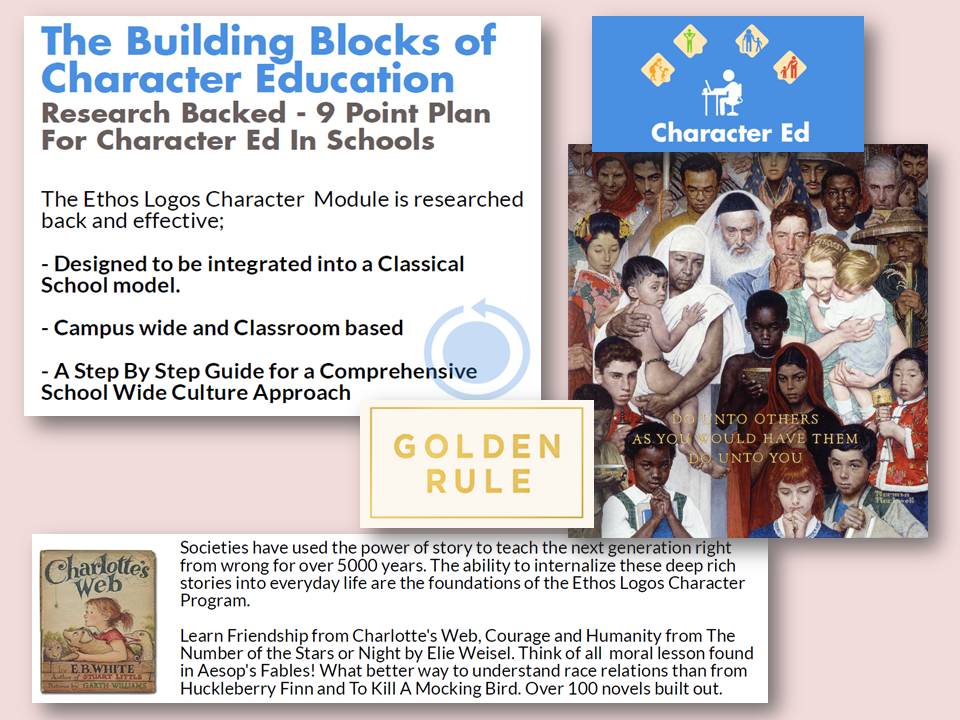
To cultivate a student’s character it becomes clear that we must focus on every aspect of a student’s experience on campus. From the way the staff communicates with the students, the dress code, the paint, and posters on the wall, the activities during recess, the way technology is integrated, the school assemblies and the way students transfer orderly through the hallways, all reflect on what is important. Our school leadership must focus on academic standards and social-emotional learning in order to prepare their students for the world.
Everything the school does teaches something.
Everything the school does is educational.
All decisions, policies, curriculum and all details of the school’s life should constantly be reviewed through the lens of teachable moments.
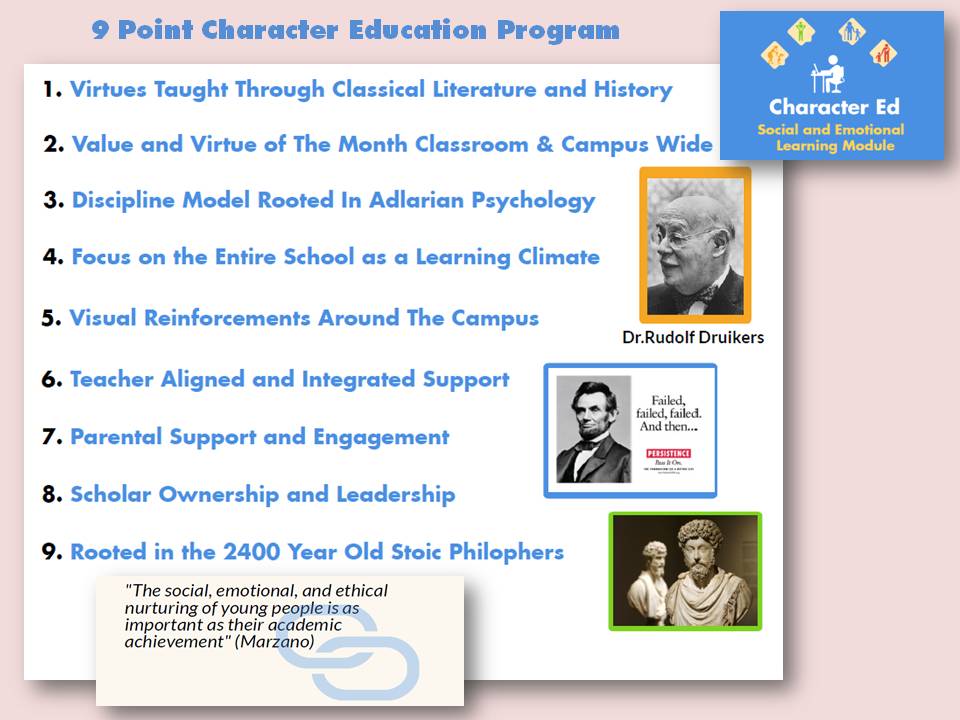
We believe that school is the secondary educator to your work at home. We strive to align with you at every turn. Attend a parent forum and you will learn our strategies for modeling high expectations for our scholars. Our staff is trained in the nuances of praise versus encouragement. We have created an environment where students witness adults modeling the learning behaviors asked of them This generates enthusiasm and inspiration for everyone to strive for excellence. We won't always agree on every issue and every child’s issue, but if we both approach our roles with Grace, Boundaries and Humility, we will align our work at school with your efforts at home to prepare your child for life ahead.
Our campuses will implement a House System which helps to break down boundaries between our students and encourage them to belong to a group that encourages them to connect. Our parents take on a leadership role of each House and are encouraged to model service projects on campus or in the community as well as adoption of our major Friend Raiser events on the campus. Events range from the Halloween Themed Fall Festival to Grandparents Day.
Our role is to expose children to the great men and women of history, the major religions, the scientific advancements and great works of literature. We present these topics, at age-appropriate levels, in non-doctrinal approaches and as theories that in some cases are still being debated. We believe that you as parents will direct your child into the beliefs that your family adheres to.
Research (Dauber, Epstein 1989) points to the important role the schools and teachers play in engaging the parents at home as part of their students learning outcomes.
The study of 2,300 parents from inner-city schools found that parents are open and receptive to wanting the schools and teachers to advise them about how to help their own children at home at each grade level. Parents believe that the schools should give specific and detailed information on academic and learning goals their children are expected to learn each year.
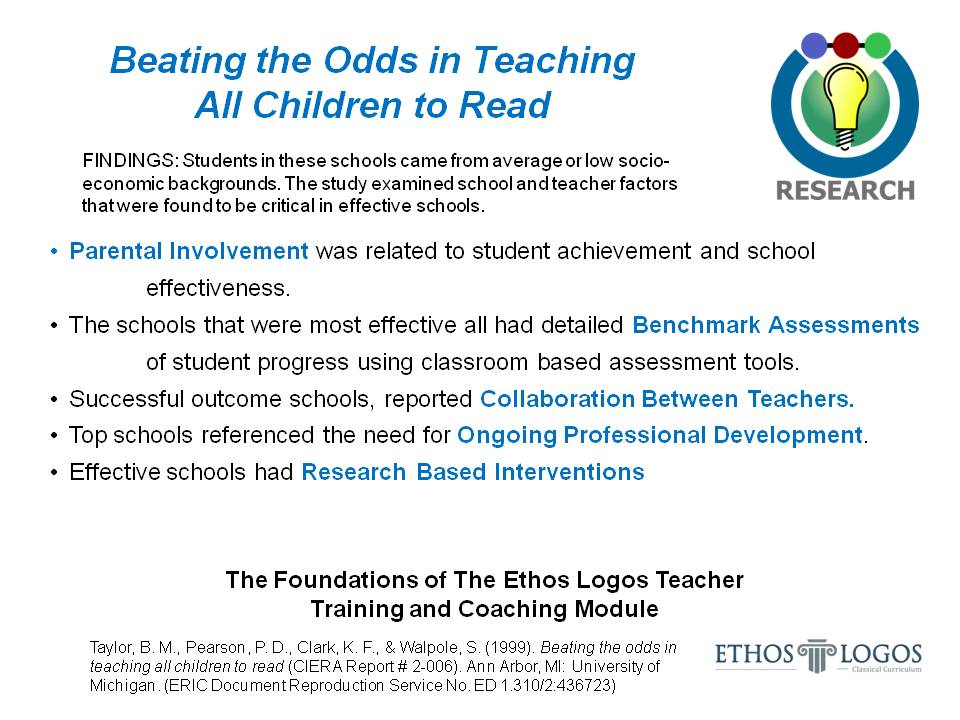
Most important for policy and practice, parents level of involvement is directly linked to the specific practices of the school that encourage involvement at school and guide parents on how to help at home. The data is clear that the schools practices to inform and to involve parents are more important than parent education level, family size, and marital status in determining whether inner-city parents stay involved with their children's education through the middle grades.
Part of the Ethos Logos Character Program involves bringing the parents along the journey of character education and equips them with some tools that can align the work being done at the school around character development with their efforts at home.
Our campuses are built to the state of the art options available. Intention and planning have been put into security measures, layout for drop off and pick up, classroom size, lighting and design, and athletic gyms and lunch facilities. We think through every detail.

Security features include double-entry during the day with the buzz in and mandatory ID capture. We have IP cameras, lock down procedures and fully secured gates that ensure a secure campus after drop off.
Our custodian team works hard to ensure our schools are in the top condition and every detail is managed.
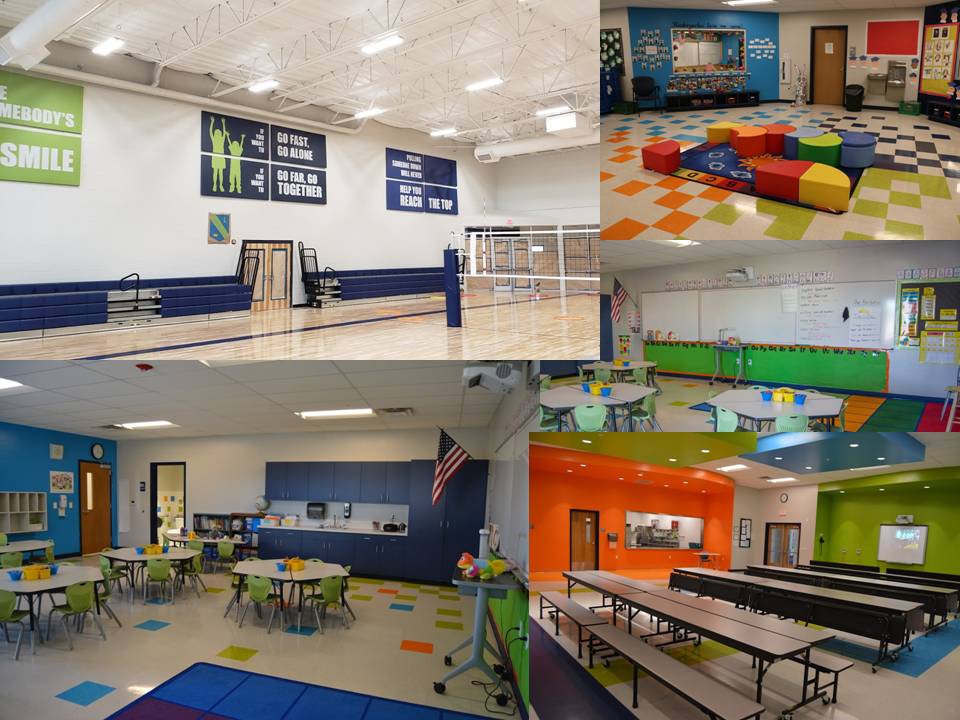
At our campuses we are proud to be educational leaders modeling what we expect from our students. We want our students to focus on learning as a process, to enjoy the discovery, to wrestle with the big ideas. Our schools should always feel safe and encourage scholars to take risks, to practice curiosity and compassion.
We are committed to building a diverse, inclusive school where all people have the opportunity to develop their voices and not only feel recognized, but valued. Perhaps most importantly, we are dedicated to graduating good citizens who are well prepared for college and the challenges of tomorrow’s world. Nothing gives me more joy than speaking with parents about the changes in their children because of the impact a Teacher, Principal, or our model has had on their family.
I invite you to contact our Admissions team at any of our Ethos Logos supported campuses to arrange a visit. You will find a warm community of active, dedicated learners ready to welcome you and your children.
Check out the SIGHTS and SOUNDS of a Classical School
In Service,

